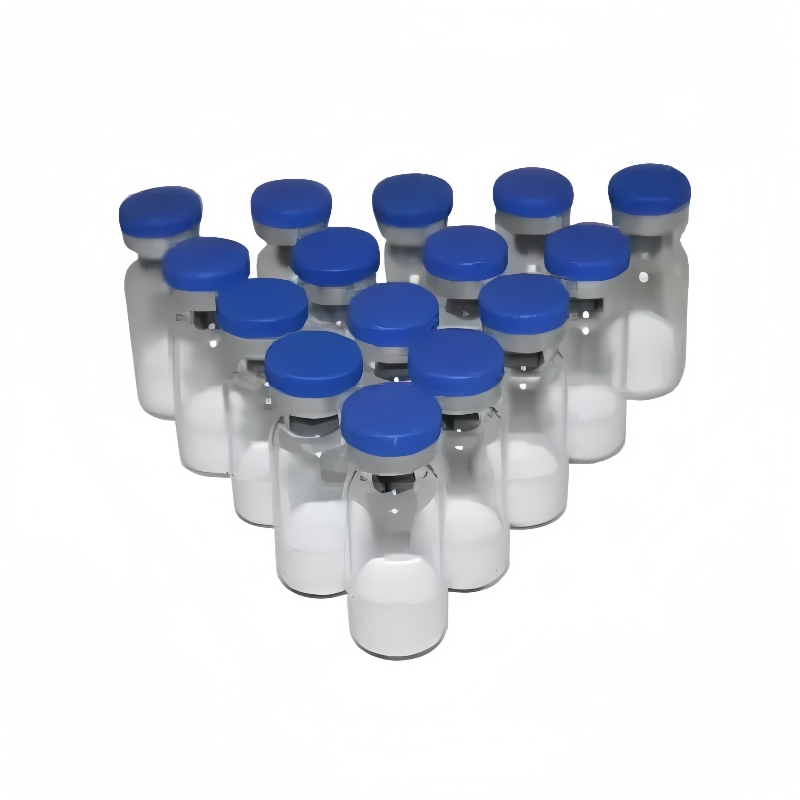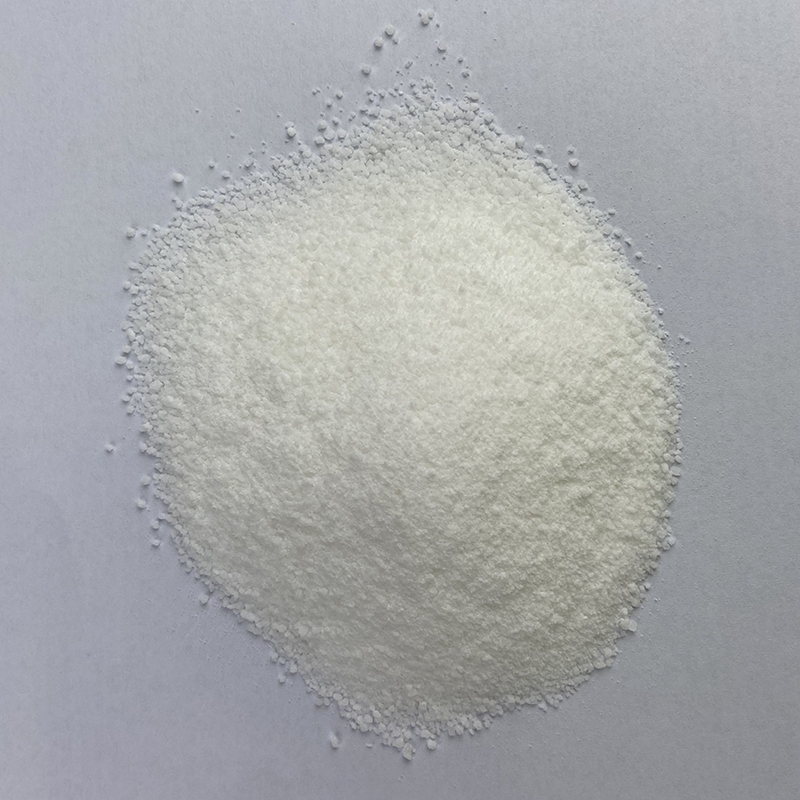-
Categories
-
Pharmaceutical Intermediates
-
Active Pharmaceutical Ingredients
-
Food Additives
- Industrial Coatings
- Agrochemicals
- Dyes and Pigments
- Surfactant
- Flavors and Fragrances
- Chemical Reagents
- Catalyst and Auxiliary
- Natural Products
- Inorganic Chemistry
-
Organic Chemistry
-
Biochemical Engineering
- Analytical Chemistry
- Cosmetic Ingredient
-
Pharmaceutical Intermediates
Promotion
ECHEMI Mall
Wholesale
Weekly Price
Exhibition
News
-
Trade Service
Edited and written by Yimaitong, please do not reprint without authorization
.
A study made "Metformin safety during pregnancy" a hot topic recently discussed in the field of endocrinology abroad
.
Metformin and medication during pregnancy-where does the worry come from? For a long time, metformin has been firmly in the top spot in the first-line treatment of type 2 diabetes (T2DM) (Note: Metformin should be avoided for mitochondrial diabetes, click to view the guide)
.
However, for patients with "gestational diabetes" or "pregnancy with T2DM", metformin has retreated to the "second line"
.
The reason is that metformin can pass through the placenta, and the blood concentration of the fetus is almost the same as that of the mother
.
Therefore, "the safety of metformin in this special population" is somewhat controversial
.
To this day, the relevant instructions are still clearly marked "Pregnant women are not recommended to use this product
.
Women who are breastfeeding should use it with caution.
.
.
" There is no doubt that more clinical safety evidence is needed
.
Diabetes Care released the latest study: The use of metformin during pregnancy causes slight differences in neonatal metabolic parameters.
This retrospective study published in the journal Diabetes Care (IF: 15.
27) provides the latest safety evidence
.
Using data from the New South Wales Newborn Screening Project, the researchers compared the newborn screening results (NBS, 24-72 hour blood samples) of babies born to mothers using metformin during pregnancy (single drug/combined insulin) with the "diet therapy group" ”And “normal control group” were compared and 25 indicators were evaluated
.
➤Metformin treatment group: A total of 574 participants (483 single-drug therapy and 99 metformin/insulin therapy) were enrolled.
The initial average gestational age was 26 weeks (0-38 weeks), and the average dose was 1326 (500-3000) mg /d, generally used until childbirth
.
➤Normal control group: 978 were included; ➤Diet treatment group: 952 were included
.
Overall, the gestational age of the newborns in the metformin treatment group was shorter (266±7 vs.
272±10 vs.
274±9 days) (P<0.
001), and the birth weight was lower (3.
28±0.
51 vs.
3.
29±0.
49 vs.
3.
29±0.
49 vs.
.
3.
33±0.
43 kg) (P=0.
008)
.
In addition, no cohort had inborn errors of metabolism (IEM), and all NBS data results were within the normal reference range
.
Although in the normal range, 9 of the 25 indicators are significantly different from the control group
.
➤Compared with the control group, the concentration of acylinosines (short-chain, medium-chain and long-chain) in the newborns in the metformin treatment group was slightly higher, and the leucine level was lower (see Table 1)
.
➤Compared with the diet treatment group, newborns in the metformin treatment group had statistical differences in butyryl carnitine (C4), isovaleryl carnitine (C5) and glutaryl carnitine (C5D), suggesting that it is related to metformin exposure Hypothetical metabolic characteristics
.
➤No vitamin B12 deficiency was found in newborns in the metformin group
.
➤The most consistent change related to metformin is an increase in isovalerylcarnitine (C5) levels
.
Table 1 Comparison of the three groups of results (raw data) What does it mean to increase the level of isovaleryl carnitine? Isovaleryl carnitine (C5) is a short-chain fatty acid esterified to carnitine.
It is usually formed by the catabolism of the branched-chain amino acids leucine and valine.
It can easily pass through the mitochondrial membrane without being transported.
Body
.
Significant increase in isovaleryl carnitine (C5) is seen in isovaleric acidemia (OMIM#2435000)-a disorder of leucine metabolism-manifested by hyperglycemia and ketosis, often misdiagnosed as diabetic ketoacidosis
.
However, the researchers said that although an increase in isovalerylcarnitine (C5) levels in newborns of metformin users has been observed, this difference is a subtle non-pathological change and does not necessarily mean that it is pathogenic
.
In conclusion, the study found subtle but non-pathological changes in neonatal metabolism, providing evidence for the effect of metformin on neonatal metabolism, especially the effect on acylcarnitines
.
"Can metformin be used during pregnancy?"-Chinese guidelines give recommendations 1.
Can metformin be used during pregnancy? Regarding the issue of whether metformin can be used during pregnancy, the "Guidelines for the Prevention and Treatment of Type 2 Diabetes in China (2020 Edition)" ("Guidelines") have given clear advice: Yes, but it is not recommended to use it alone, it needs to be based on insulin Joint application
.
And, except for metformin, other oral hypoglycemic drugs are not recommended for use during pregnancy
.
The "Guide" points out: A number of head-to-head studies and meta-analysis on the use of metformin and insulin during pregnancy suggest that the use of metformin is beneficial in controlling postprandial blood sugar, reducing weight gain in pregnant women, and the occurrence of severe hypoglycemia in newborns.
Metformin exposure does not increase the risk of any congenital malformations
.
Source: 2020 CDS Guidelines 2.
How to deal with special circumstances? The "Guide" mentions: For metformin-treated T2DM patients of childbearing age and severe insulin resistance treated with metformin PCOS patients, they can become pregnant on the basis of taking metformin.
Whether to stop metformin after pregnancy is subject to a comprehensive judgment based on blood glucose and the patient’s wishes.
Continue to use or add metformin as appropriate
.
3.
There are no relevant indications in the instructions, what should I do clinically? The "Guide" mentions: Since China has no indications for the use of metformin during pregnancy, it needs to be used with informed consent.
It is not recommended to use metformin alone during pregnancy, and it needs to be used in combination on the basis of insulin
.
In this summary, the researchers stated that the study found for the first time that the level of 24-72-hour metabolic intermediates in newborns of pregnant users of metformin was slightly different.
Compared with the normal control group, newborns in the metformin group had short-chain, medium-chain and one-long-chain acyl groups.
The concentration of carnitine (myristyl carnitine [C14]) was higher; compared with the diet treatment group, the metformin group butyl carnitine (C4), isoamyl carnitine (C5) and glutaryl carnitine (C5D) ) Elevated
.
However, these changes are very small, far from reaching the point where pathological indicators or remedial measures need to be taken, and further investigation is needed in the future
.
References: [1]Estrella J, Wiley V, Simmons D, et al.
Effect of Maternal Metformin Treatment in Pregnancy on Neonatal Metabolism: Evidence From Newborn Metabolic Screening[J].
Diabetes Care, 2021,44(11):2536- 2541.
[2] Diabetes Branch of Chinese Medical Association.
Guidelines for Prevention and Treatment of Type 2 Diabetes in China (2020 Edition)[J].
Chinese Journal of Diabetes, 2021, 13 (04): 315-409.
.
A study made "Metformin safety during pregnancy" a hot topic recently discussed in the field of endocrinology abroad
.
Metformin and medication during pregnancy-where does the worry come from? For a long time, metformin has been firmly in the top spot in the first-line treatment of type 2 diabetes (T2DM) (Note: Metformin should be avoided for mitochondrial diabetes, click to view the guide)
.
However, for patients with "gestational diabetes" or "pregnancy with T2DM", metformin has retreated to the "second line"
.
The reason is that metformin can pass through the placenta, and the blood concentration of the fetus is almost the same as that of the mother
.
Therefore, "the safety of metformin in this special population" is somewhat controversial
.
To this day, the relevant instructions are still clearly marked "Pregnant women are not recommended to use this product
.
Women who are breastfeeding should use it with caution.
.
.
" There is no doubt that more clinical safety evidence is needed
.
Diabetes Care released the latest study: The use of metformin during pregnancy causes slight differences in neonatal metabolic parameters.
This retrospective study published in the journal Diabetes Care (IF: 15.
27) provides the latest safety evidence
.
Using data from the New South Wales Newborn Screening Project, the researchers compared the newborn screening results (NBS, 24-72 hour blood samples) of babies born to mothers using metformin during pregnancy (single drug/combined insulin) with the "diet therapy group" ”And “normal control group” were compared and 25 indicators were evaluated
.
➤Metformin treatment group: A total of 574 participants (483 single-drug therapy and 99 metformin/insulin therapy) were enrolled.
The initial average gestational age was 26 weeks (0-38 weeks), and the average dose was 1326 (500-3000) mg /d, generally used until childbirth
.
➤Normal control group: 978 were included; ➤Diet treatment group: 952 were included
.
Overall, the gestational age of the newborns in the metformin treatment group was shorter (266±7 vs.
272±10 vs.
274±9 days) (P<0.
001), and the birth weight was lower (3.
28±0.
51 vs.
3.
29±0.
49 vs.
3.
29±0.
49 vs.
.
3.
33±0.
43 kg) (P=0.
008)
.
In addition, no cohort had inborn errors of metabolism (IEM), and all NBS data results were within the normal reference range
.
Although in the normal range, 9 of the 25 indicators are significantly different from the control group
.
➤Compared with the control group, the concentration of acylinosines (short-chain, medium-chain and long-chain) in the newborns in the metformin treatment group was slightly higher, and the leucine level was lower (see Table 1)
.
➤Compared with the diet treatment group, newborns in the metformin treatment group had statistical differences in butyryl carnitine (C4), isovaleryl carnitine (C5) and glutaryl carnitine (C5D), suggesting that it is related to metformin exposure Hypothetical metabolic characteristics
.
➤No vitamin B12 deficiency was found in newborns in the metformin group
.
➤The most consistent change related to metformin is an increase in isovalerylcarnitine (C5) levels
.
Table 1 Comparison of the three groups of results (raw data) What does it mean to increase the level of isovaleryl carnitine? Isovaleryl carnitine (C5) is a short-chain fatty acid esterified to carnitine.
It is usually formed by the catabolism of the branched-chain amino acids leucine and valine.
It can easily pass through the mitochondrial membrane without being transported.
Body
.
Significant increase in isovaleryl carnitine (C5) is seen in isovaleric acidemia (OMIM#2435000)-a disorder of leucine metabolism-manifested by hyperglycemia and ketosis, often misdiagnosed as diabetic ketoacidosis
.
However, the researchers said that although an increase in isovalerylcarnitine (C5) levels in newborns of metformin users has been observed, this difference is a subtle non-pathological change and does not necessarily mean that it is pathogenic
.
In conclusion, the study found subtle but non-pathological changes in neonatal metabolism, providing evidence for the effect of metformin on neonatal metabolism, especially the effect on acylcarnitines
.
"Can metformin be used during pregnancy?"-Chinese guidelines give recommendations 1.
Can metformin be used during pregnancy? Regarding the issue of whether metformin can be used during pregnancy, the "Guidelines for the Prevention and Treatment of Type 2 Diabetes in China (2020 Edition)" ("Guidelines") have given clear advice: Yes, but it is not recommended to use it alone, it needs to be based on insulin Joint application
.
And, except for metformin, other oral hypoglycemic drugs are not recommended for use during pregnancy
.
The "Guide" points out: A number of head-to-head studies and meta-analysis on the use of metformin and insulin during pregnancy suggest that the use of metformin is beneficial in controlling postprandial blood sugar, reducing weight gain in pregnant women, and the occurrence of severe hypoglycemia in newborns.
Metformin exposure does not increase the risk of any congenital malformations
.
Source: 2020 CDS Guidelines 2.
How to deal with special circumstances? The "Guide" mentions: For metformin-treated T2DM patients of childbearing age and severe insulin resistance treated with metformin PCOS patients, they can become pregnant on the basis of taking metformin.
Whether to stop metformin after pregnancy is subject to a comprehensive judgment based on blood glucose and the patient’s wishes.
Continue to use or add metformin as appropriate
.
3.
There are no relevant indications in the instructions, what should I do clinically? The "Guide" mentions: Since China has no indications for the use of metformin during pregnancy, it needs to be used with informed consent.
It is not recommended to use metformin alone during pregnancy, and it needs to be used in combination on the basis of insulin
.
In this summary, the researchers stated that the study found for the first time that the level of 24-72-hour metabolic intermediates in newborns of pregnant users of metformin was slightly different.
Compared with the normal control group, newborns in the metformin group had short-chain, medium-chain and one-long-chain acyl groups.
The concentration of carnitine (myristyl carnitine [C14]) was higher; compared with the diet treatment group, the metformin group butyl carnitine (C4), isoamyl carnitine (C5) and glutaryl carnitine (C5D) ) Elevated
.
However, these changes are very small, far from reaching the point where pathological indicators or remedial measures need to be taken, and further investigation is needed in the future
.
References: [1]Estrella J, Wiley V, Simmons D, et al.
Effect of Maternal Metformin Treatment in Pregnancy on Neonatal Metabolism: Evidence From Newborn Metabolic Screening[J].
Diabetes Care, 2021,44(11):2536- 2541.
[2] Diabetes Branch of Chinese Medical Association.
Guidelines for Prevention and Treatment of Type 2 Diabetes in China (2020 Edition)[J].
Chinese Journal of Diabetes, 2021, 13 (04): 315-409.







